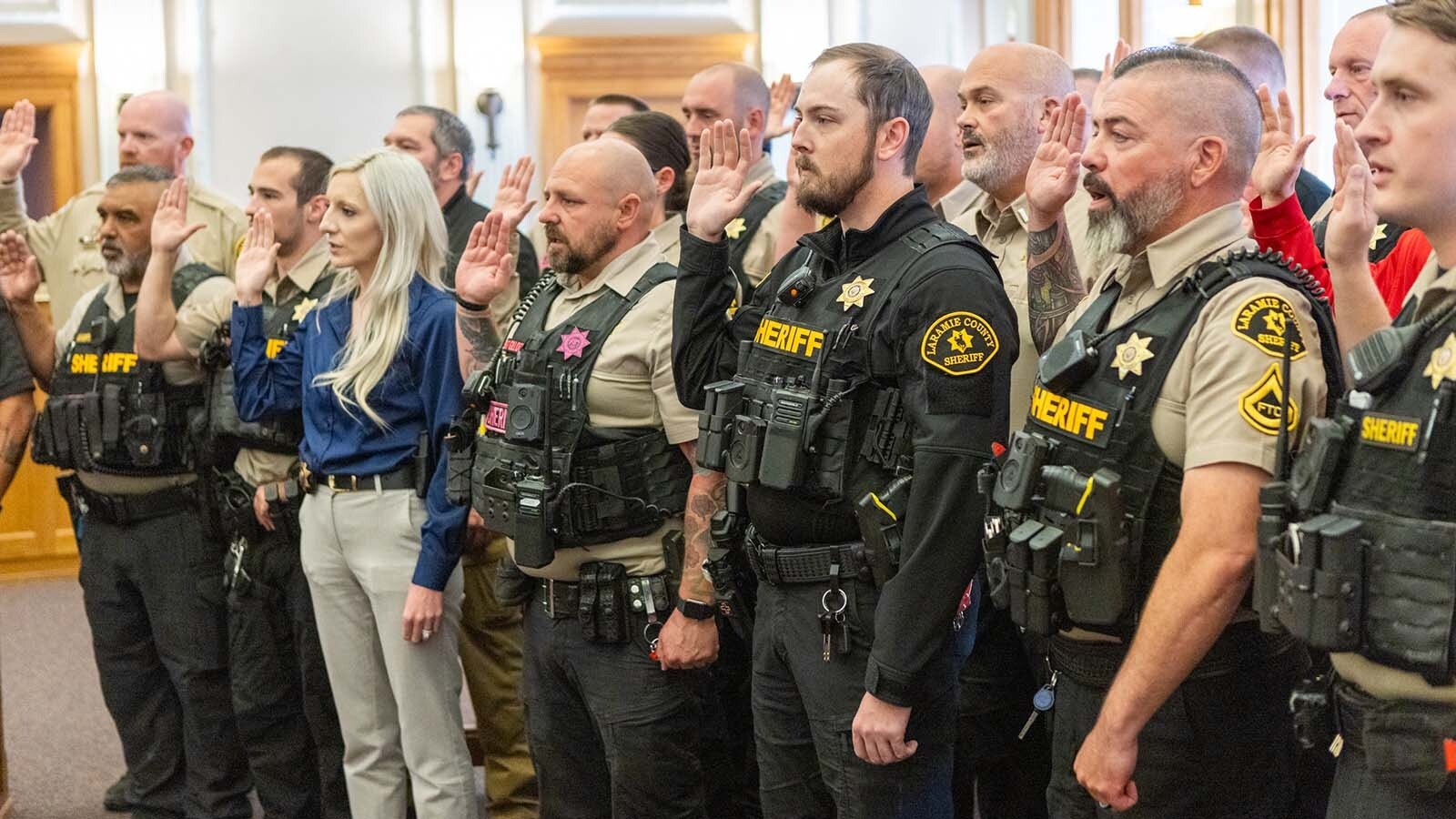A U.S. Supreme Court ruling upholding a Texas law that requires pornography websites to verify their viewers are adults protects Wyoming’s new age-verification law as well, its sponsor says.
Passed in March, Wyoming’s House Bill 43 takes effect starting Tuesday.
It will require platforms that offer pornography in the regular course of a profit-driven business to verify, via reasonable methods, that their consumers in Wyoming are 18 or older.
Parents whose kids make it onto these sites can sue them for $5,000 per instance.
The law also requires the platforms to delete people’s identifying information after they use it. And In a 6-3 ruling released Friday, the U.S. Supreme Court held Texas’ similar, but not identical, law constitutional.
Texas’ law, unlike Wyoming’s, lets the state’s attorney general level civil penalties against offenders.
It’s constitutional because courts have upheld state actions to keep minors away from content that, by community standards, is obscene to them, Justice Clarence Thomas wrote in a six-justice majority opinion joined by Chief Justice John Roberts and Justices Samuel Alito, Amy Coney Barrett, Neil Gorsuch and Brett Kavanaugh.
Retired attorney and state Rep. Martha Lawley, R-Worland, told Cowboy State Daily the ruling “does, very definitely” uphold Wyoming’s law alongside Texas’.
She was watching this case, Free Speech Coalition v. Paxton, as it rose from the federal district court to the Fifth Circuit Court of Appeals to the Supreme Court.
And she tailored Wyoming’s law around concerns judges voiced along the way, said Lawley.
Letting parents sue pornography platforms was her main workaround, she said, since it kept government enforcement out of the equation.
In the end, that precaution wasn’t as necessary as she thought.
Thomas’ ruling says that the Texas law survives the judicial standard of “intermediate” scrutiny because it imposes only incidental burdens on adults’ right to access pornographic content, or content that would be obscene to minors and not adults.
“The ruling is a complete win,” she said. “I appreciate the work of the Supreme Court in clarifying that age verification is not overly burdensome to the free speech of adults.”
One of Thomas’ key concerns in the majority opinion was that judging Texas’ law under a too-rigorous standard would render longstanding age-verification laws governing in-person purchases unconstitutional.
Lawley, while advocating for the new law, pointed to the harmful effects of pornography on kids.
“As we continue to move forward in the digital frontier, we owe it to our children to bring safety and structure to the online space,” she said at the time.
Next Up …
Wyoming’s age-verification law passed both legislative chambers with overwhelming majorities in favor.
One lawmaker, state Rep. Karlee Provenza, D-Laramie, opposed it on the House’s third reading vote. Three did so on the Senate side: Sens. Cale Case, R-Lander; Mike Gierau, D-Jackson; and Chris Rothfuss, D-Laramie.
The issue, said Provenza in a Friday text message to Cowboy State Daily, is that the law could have a chilling effect on protected speech.
“In states like Florida, where this law has existed longer, more legitimate companies (which) use consenting adults and provide a system of verification on what they distribute will stop allowing anyone to access content,” wrote Provenza. “Because they view privacy concerns with ID verification so problematic they don’t want to engage.”
That could expand the pornography market, including to foreign vendors and sites that no one will be able to monitor.
“So, companies (that) are invested in protecting children won’t be around, but illicit websites will,” said Provenza. “Unfortunately, there’s no good policing mechanism for the internet.”
Rep. Mike Yin, D-Jackson, voted in the law’s favor on third reading but cautioned lawmakers not to violate people’s privacy, and worried the private right of action wouldn’t be enough to curb companies’ temptation to sell data.
Provenza questioned whether people whose data were sold by porn sites or their contractors would be willing to sue over that, since they’d be airing their “dirty laundry” in a public court of law that way.
Yin, in a Friday text-message statement to Cowboy State Daily, said, “Social media does more harm to minors than porn, so I’m considering bringing a bill to apply Wyoming’s age verification law to social media apps.”
Doing Better
No one doubts that governments have a compelling interest in keeping kids safe from porn, says Justice Elena Kagan’s dissent, which Justices Ketanji Brown-Jackson and Sonia Sotomayor joined.
But the trouble comes when governments try so hard to protect kids that in the process they violate adults’ rights, wrote Kagan.
She said she would have examined Texas’ law under the higher constitutional standard of strict scrutiny, which it could only survive if the law achieved the state’s compelling interest in the least restrictive means available.
“What if Texas could do better — what if Texas could achieve its interest without so interfering with adults’ constitutionally protected rights in viewing the speech (Texas’ law) covers?” she wrote. “That is the ultimate question on which the Court and I disagree.”
Sending the case back down to the lower court with the higher standard attached to it might not have killed Texas’ law, Kagan wrote. It “should not be the horror show for Texas and other States that the majority maintains.”
Clair McFarland can be reached at clair@cowboystatedaily.com.





